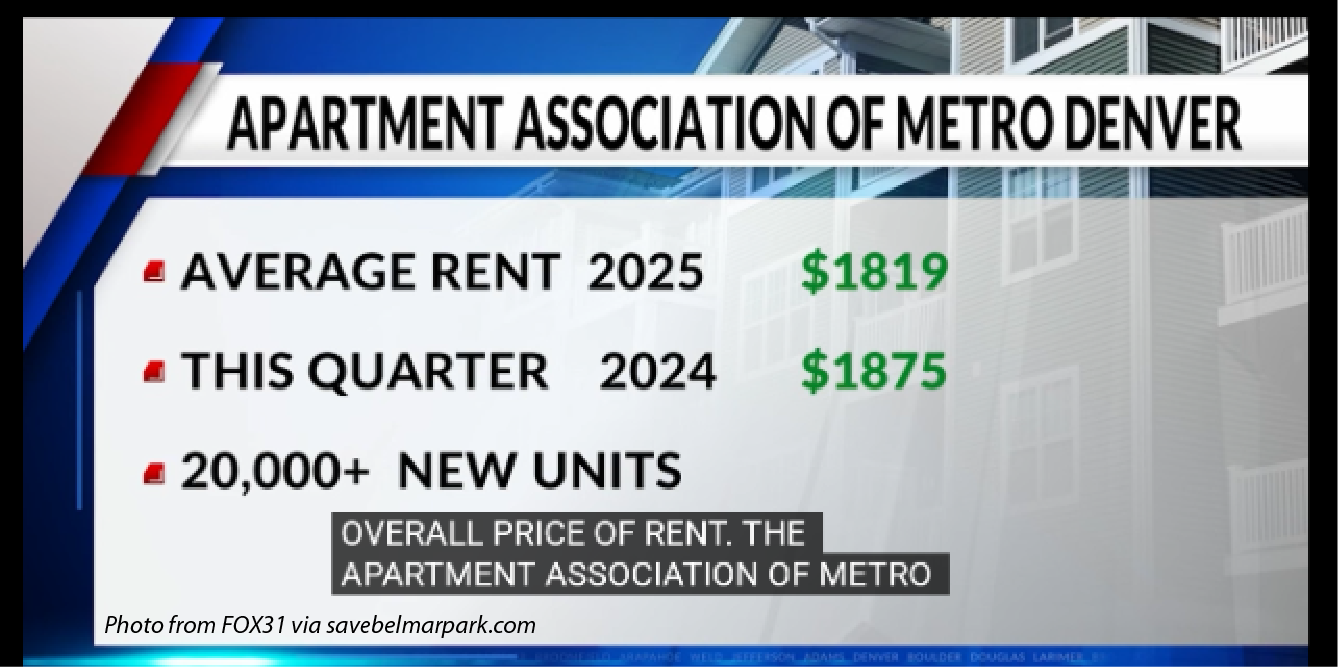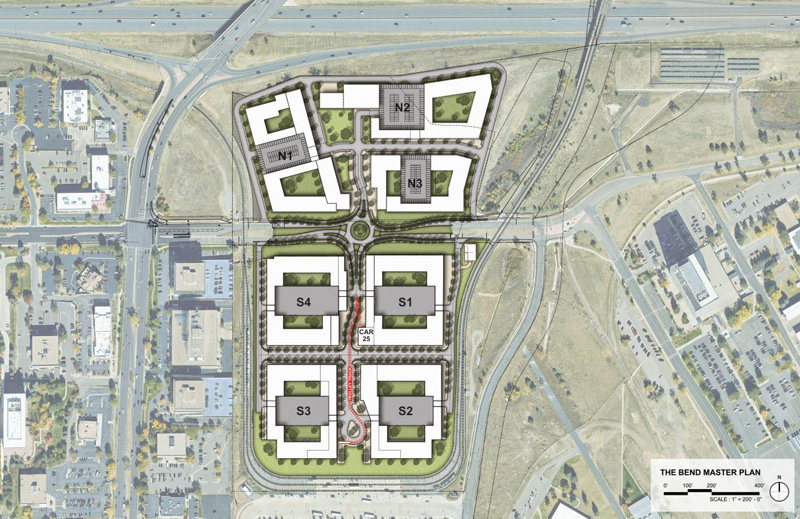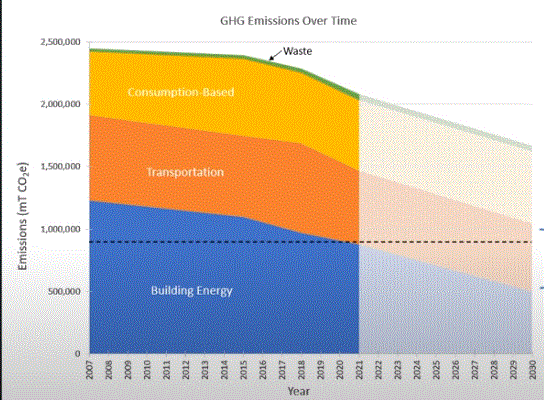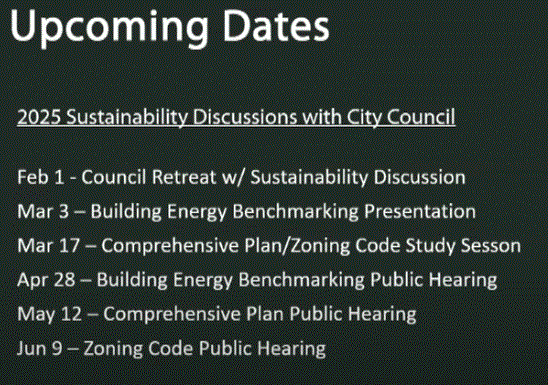From savebelmarpark.com
Many of you are aware of the ongoing attack on Front Range habitats including Belmar Park, Chatfield State Park and Bear Creek Lake Park. Unfortunately, habitats are under pressure globally which threatens the web of life for everyone on the planet.
This trend is often justified locally by proclaiming the need to ignore the value of habitats because there is a ‘housing shortage’ and building more housing is necessary above all else.
While statistics are not supportive of that argument for the Lakewood area, proponents continue to repeat it for lack of anything better to spout.
Some even claim that regardless of whether there is an actual shortage of housing, it is necessary to build more housing in order to reduce the cost of rent. In other words, if there are enough vacant, unused rental units, THAT will cause rent to come down significantly.
Yet that 20,000 units was actually a much larger than average inventory increase.
“This growth far exceeds Denver’s average annual construction of 11,400 units over the past five years” according to JP Morgan.
Because adding 20,000 units was such an outsized increase, it should have reduced rents significantly but for many local residents the $56 was not enough relief.
Yes, rents declined but according to the FOX31 report, developers also reduced apartments under construction by over 36% which will exert upward pressure on rents.
Proponents of continuously building more and more rental units might say the minimal rent reduction was due to the upward pressure on rents caused by the population increase!
They claim we need to keep building rental units to accommodate the population increase in Lakewood which is causing the so-called ‘housing shortage’.
What population increase are they talking about?
Developers don’t seem to agree with the growth argument since they reduced the amount of units under construction by 36%.
The US Census Bureau shows Lakewood has experienced a population increase of less than 1,000 people from April 1, 2020 through July 1, 2024. That is almost zero growth over 4 years!
Even Denver has increased only 13,500 which is less than 2% total growth in that extended 4-year time period. Compare that to the 20,000 units added plus the 11,000 units per year average for earlier years. It would seem a lot more units are getting built than are needed.
Jefferson County has actually lost 4,000 population in that same time period.
Neither Lakewood nor Jeffco are in a population growth mode.
As you probably know, because the secret is finally out – Jefferson County is closing schools! Even selling off school buildings. That is not exactly an indication of population growth. Just the opposite.
So let me ask, if I can find this data and you can click and easily verify it, why can’t the Planning Commission or the City Council find these relevant facts to inform their planning horizon and policies? What is that different drum they are dancing to?
Why do we have to sacrifice the habitat quality of Belmar Park to accommodate population growth that does not exist?
And as far as the use-by-right argument for private property? We have previously exposed the fact use-by-right is irrelevant since the developer has to do earth moving in Belmar Park itself and they needed Lakewood to surrender valuable easements to enable their project.
Instead of use-by-right, we should call it use-by-deception.
So the question still stands. What is that different drum?









